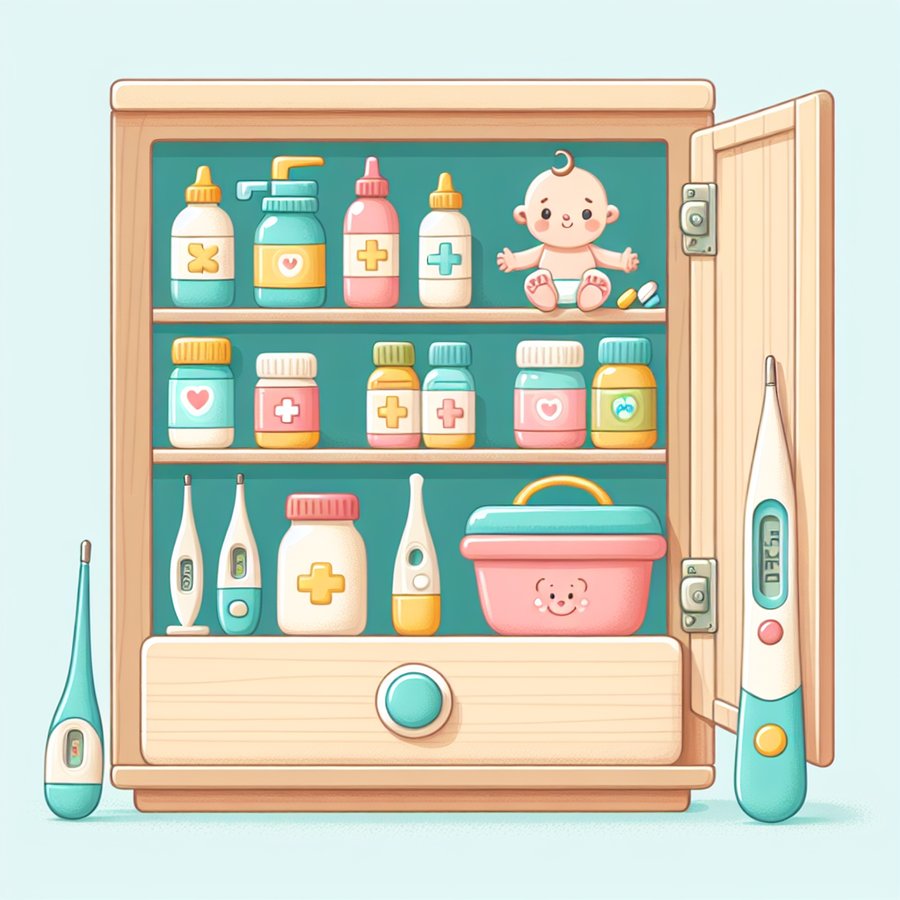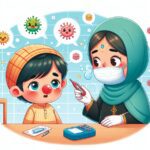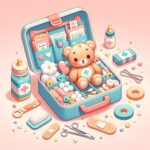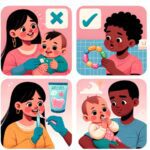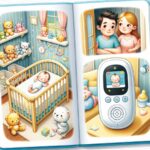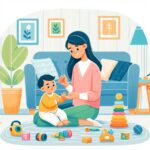Every new parent knows the importance of being prepared for every little hiccup in their baby’s early years, making Essentials for a baby’s medicine cabinet a critical checklist item. From fever to the first cold, having the right items at your fingertips can make all the difference. This guide will delve into the must-haves for your little one’s healthcare, ensuring you’re ready for anything.
Understanding the Basics: Essentials for a Baby’s Medicine Cabinet
A well-stocked medicine cabinet is your first line of defense in caring for your baby’s health. But what exactly are the Essentials for a baby’s medicine cabinet? The basics include a digital thermometer, nasal aspirator, baby-safe pain reliever and fever medicine (like acetaminophen or ibuprofen), oral rehydration solution, and a gentle antiseptic for cleaning cuts and scrapes. It’s also wise to include a soothing ointment for diaper rash and a gentle lotion for dry skin.
Remember, while it’s tempting to stock up, always consult your pediatrician before administering any medicine to your baby. For a deeper dive into the basics of baby care and common ailments, don’t miss our article on first aid kit essentials for new parents.
When to Use What: Navigating Your Baby’s First Cold and Fever
The key to effectively managing your baby’s first cold or fever lies in knowing when and how to use the Essentials for a baby’s medicine cabinet. For colds, a nasal aspirator and saline drops can help alleviate congestion. During a fever, keeping your baby hydrated and comfortable is paramount, alongside using baby-safe fever medicine as directed by your healthcare provider.
It’s equally important to recognize when a visit to the doctor is necessary. Signs like a fever in a baby younger than 3 months, persistent crying, or dehydration warrant professional medical advice. Learn more about these signs in our guide on navigating your baby’s first cold: symptoms and when to call the doctor.
Supplementary Items: Beyond the Essentials
While covering the Essentials for a baby’s medicine cabinet is crucial, there are supplementary items that can further aid in your baby’s comfort and recovery. Items like a cool mist humidifier can add moisture to the air, soothing your baby’s respiratory discomfort. A baby-safe sunscreen and insect repellent are also important for protecting your baby during outdoor activities.
Additionally, having a reference book or a reliable online resource on pediatric health can be invaluable for quick information. For example, understanding the importance of hydration can be crucial during illness, which is elaborated in our guide on hydration tips for ill or feverish toddlers.
Preparing your baby’s medicine cabinet with these essentials and supplementary items ensures you’re well-equipped to handle common health issues. Always keep the products out of reach of children and regularly check expiration dates. With the right preparation, you can navigate the ups and downs of your baby’s health with confidence.

